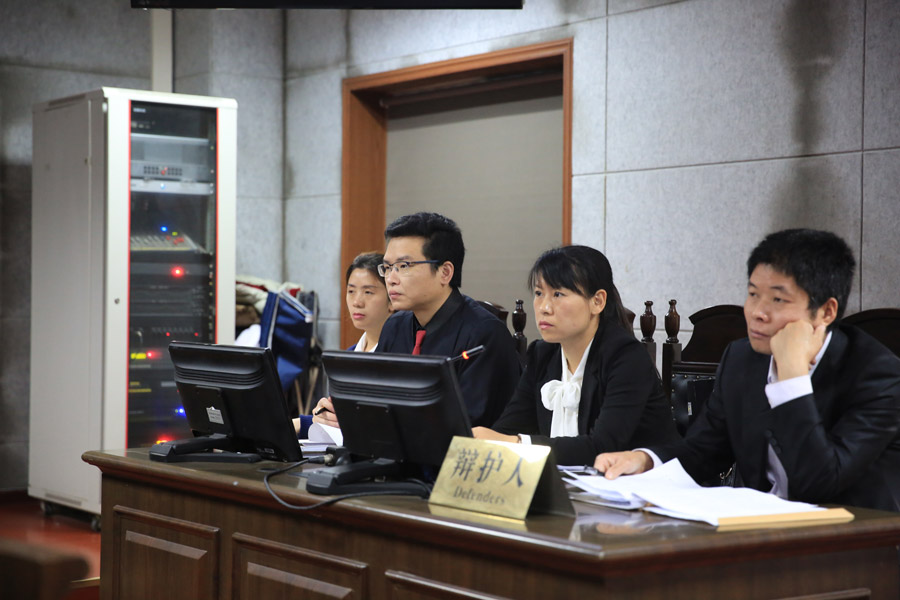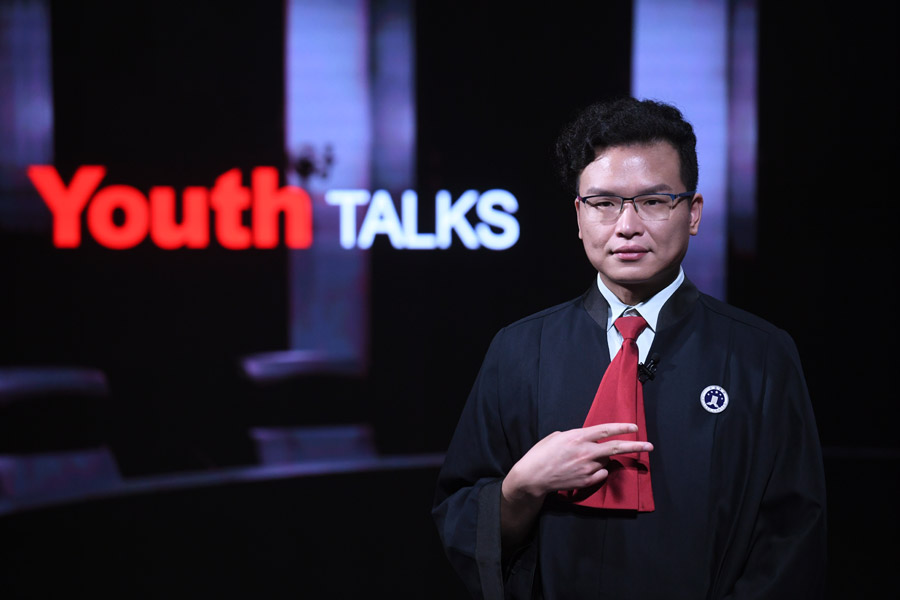
From the People's Daily App.
This is Story in the Story.
There are over 20 million deaf and hard-of-hearing people in China, which equates to one out of every 65 people in the country.
While Chinese courts hire sign language interpreters, language barriers exist.
Sign language in China can be roughly divided into two categories: natural sign language, which deaf people use in their own communities and are passed on through generations, and a standardized sign language which is promoted by the China Disabled Persons Federation.
Courtroom sign language interpreters are mostly able-bodied people who use the standardized sign language. This results in language barriers in court, even with the presence of interpreters, who sometimes have to guess what a deaf person is trying to say.
Due to the lack of legal professionals who understand sign language, it has been difficult for those people to communicate with the police.
Many disabled people also do not receive a proper education, and some cannot even read or write.
Today’s Story in the Story looks at how efforts are underway to provide the hearing impaired with greater access to the country’s legal system.

Tang Shuai (second from left) appears in court as a defence counsel in Chongqing. (Photo: China Daily)
Tang Shuai's social messaging app WeChat almost crashed after thousands of people sent him invitations, hoping to befriend him. All these aspiring WeChat friends had one thing in common: they are deaf.
After he was featured in a video by the legal authorities of Dadukou District in Chongqing, calling him the only sign language lawyer in China, thousands of deaf people immediately sought him out for legal assistance.
After working as a sign language interpreter in Chinese courts for six years, Tang, 34, passed China's judicial examination and became a lawyer in 2012.
Since then, he has spent most of his time fighting for the legal rights of the deaf and promoting legal awareness among the deaf community.
Born to deaf parents, Tang has normal hearing but grew up in a mostly deaf environment. Most of the friends and colleagues of his parents, who worked at the same factory, were deaf.
Since he was young, Tang's father has wanted him to break out of this social bubble, sending him to live with his grandmother so that he could have people to talk to. They were even against him learning sign language, even though that meant he would not be able to communicate with them.
One particularly stark example of how deaf people lack legal awareness involved his neighbor, a deaf woman, who died after an operation at a local hospital.
Her deaf husband and friends, angry about the operation result, blocked the hospital entrance in protest. As a result, the hospital refused to admit deaf patients for years. Tang's mother was also refused when she suffered a stroke.

Tang shows the sign for "law" on a TV show. (Photo: China Daily)
In 2005, Tang was enrolled by the Southwest University of Political Science & Law and majored in law. At the same time, he worked as a sign language interpreter in Chongqing's courts and witnessed first-hand the disadvantaged position deaf people could find themselves in, whether they were plaintiffs or defendants.
In his six years as a sign language interpreter, Tang did not encounter one lawyer who understood sign language in China.
Tang, who understands both forms of sign language, often cites one case in which an elderly lady sought his help to illustrate how interpreters can sometimes influence cases involving deaf people.
According to court records, the lady's daughter had pled guilty to stealing an iPhone but told her mother that she didn't do it.
Tang viewed video recordings of the case and found that the court interpreter had misinterpreted her daughter's sign language, she said, "I didn't steal," but it was interpreted as "I stole a golden iPhone."
"This case touched me a lot, and it was one of the reasons that I wanted to shift from being an interpreter to a lawyer. Interpreters should give voice to deaf people, but it's difficult to make sure that they fully understand them," he said.
In one court hearing, Tang found that the interpreter had ignored the part notifying the deaf defendant of his litigation rights and the rules in court. He quickly interrupted the interpreter and pointed out the mistake.
"I hope that as a lawyer who actually understands sign language, I can be a line of defense against wrongful convictions," Tang said.
This legal education has taken up most of Tang's spare time, and he shows no sign of stopping. "If there really is only one sign language lawyer in China, then I would feel guilty if I wasn't doing this."
(Produced by Nancy Yan Xu, Lance Crayon, Brian Lowe, and Da Hang. Music by: bensound.com. Text from Global Times and China Daily.)


